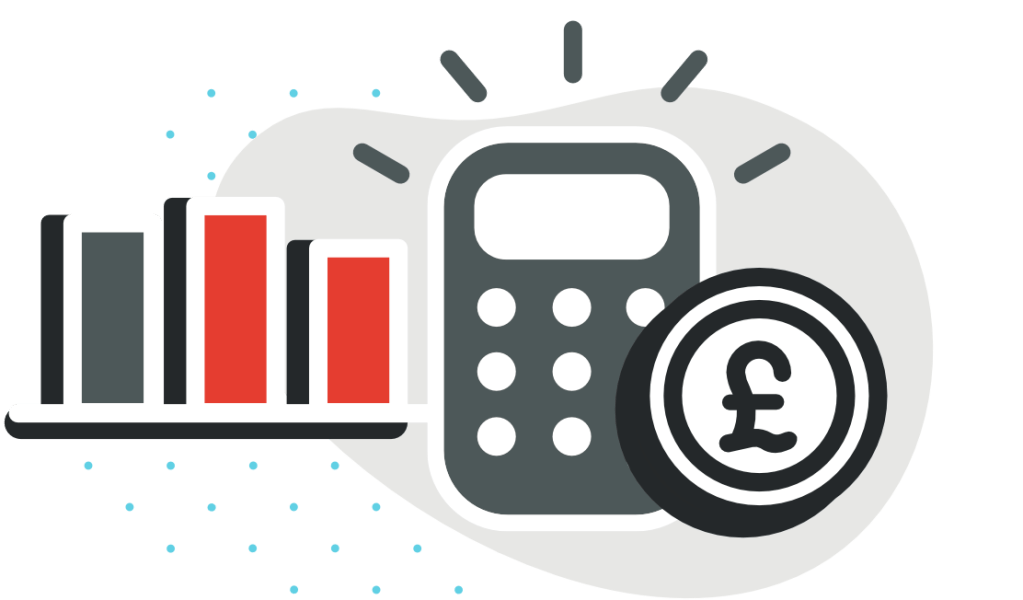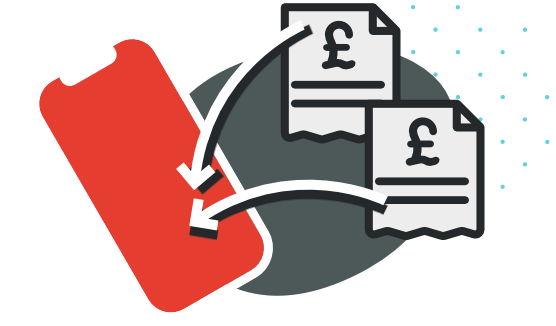3 simple ways to keep track of your business expenses
Table of Contents
All businesses have expenses, and while larger companies can rely on their trusty accounts department to handle them, if you’re running your own business this task will be down to you.
As there are so many business activities to focus on, tracking expenses often gets pushed to the bottom of the to-do list for self-employed people. Finding yourself with a heap of uncategorised receipts the night before your tax return deadline is something we want to help you avoid. Be sure to read our article about invoices vs receipts.
Given that proper recording of expenses can mean a lower tax bill, it makes sense to get organised as early as possible. Not only could it save you money, it will save you a lot of time and stress in the long run.
Here are our top three tips to you keep on top of your business expenses:
1. Use a business account
Small business owners often use their personal account for business, but mixing personal and business finances is not a good idea. If you’re wondering whether you need a business account, the answer is: absolutely yes.
Mixing your personal and business expenses makes it harder to get your bookkeeping done – and can cost you in the form of an increased tax bill when your deductible and personal expenses are muddled.

In addition, when your personal and business finances are mixed, it becomes difficult to gain a view into your business cash flow. For an insight into your business’ health, you would need to manually document each of your business transactions into a spreadsheet, which is time consuming to say the least.
2. Keep financial records as you go along
To be compliant with HMRC, limited companies must keep their receipts for six years. If you’re self-employed, you’ll need to store these records for five years. That’s a long time to keep a pile of crumpled receipts, let alone identify which receipt matches which expense.
However, this no longer has to mean hours of manual data entry into spreadsheets, or storing receipts in a shoebox. A good financial app will nudge you to photograph and digitally record your expenses as you go along. Building this healthy habit into your everyday will make a big difference in the long run.

The Countingup app and business account provides self-employed people across the UK with free accounting software. Its automatic expense categorisation and receipt capture tool makes it simple to keep an accurate, digital record of any expenses.
The two-in-one business account and accounting software helps thousands keep their financial data and bookkeeping records in one place. It also eliminates the data lags and errors that come with connecting business accounts to accounting software. This dramatically minimises the chance of costly and time-consuming bookkeeping mistakes.
3. Be meticulous about your expenses
It can be easy to overlook your deductible expenses, especially when you’re a new business owner. Some expenses that often get missed include:
- Home office: If you’re working from home some or part of the time, you need to calculate your allowable expenses using a flat rate per month.
- Travel expenses: There’s more to travel expenses than fuel and accommodation – you can also claim tax relief on meals, parking and congestion charges, tolls and business calls.
- Miscellaneous expenses: Things like legal fees and renewing annual licences, subscriptions and certifications should also be included.
Tracking your business expenses takes time and patience. With the right tools to hand, the process can become a lot easier. Setting up a successful business involves being organised with your finances from the early days – and the less admin you’re bogged down with, the better.
Countingup is helping thousands of UK small business owners keep their financial records in good shape, simplifying their tax returns. Apply for your business account online today.



